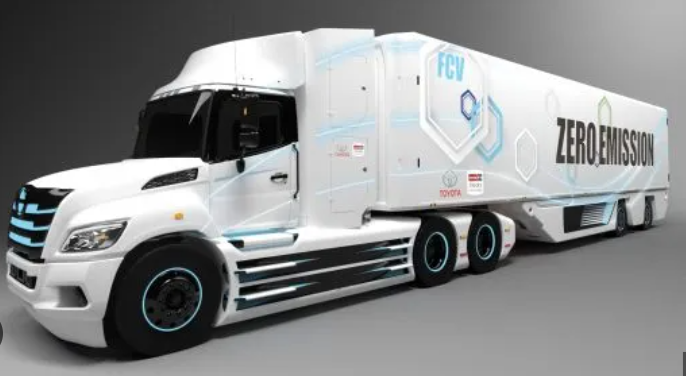Fewer stops, less time spent fueling: The promise of hydrogen fuel-cell power
Submitted by Bill on
The Clean Air Task Force has recently come to the conclusion that Hydrogen Fuel Cell Vehicles are the best solution to eliminating harmful emissions from large Commercial Vehicles. Here is a link to their study:
https://cdn.catf.us/wp-content/uploads/2023/03/13145547/zero-emission-lo...
Here is a quick recap of the study:
For long-haul heavy-duty operation, the hydrogen fuel cell vehicle (FCEV) outperforms the battery electric vehicle (BEV) in terms of number of stops required, total fueling time, and available room for cargo. Furthermore, switching a significant portion of heavy-duty trucks to a battery electric drivetrain requires a more robust infrastructure buildout, in terms of size or number of stations, whereas the buildout for hydrogen, while still challenging, is comparatively more similar to diesel. BEV likely will close the gap with FCEV on several of these metrics if 1 – 2 MW class high-power charging becomes widely available. Significant challenges remain both for BEV and FCEV. Stations for either alternative drivetrain require infrastructure changes and investments in order to deliver the necessary power or hydrogen, and both station types would use more land than diesel stations today. Unique to BEVs, the charging station electric power requirements are high enough to cause concern about the negative effects on the grid as well as the possibility of not being able to secure enough clean electricity. For FCEVs, more research and development is needed to achieve fueling times equal to those of diesel, and either a reduction in drivetrain component or glider weight is needed to eliminate any potential cargo capacity limitations. In addition, this analysis did not evaluate total cost of ownership for either alternative drivetrain.
To summarize, long-haul heavy trucking contributes to nearly half of all heavy trucking emissions in the United States. It is one of the most difficult areas to decarbonize due to the distance traveled, duty-cycle, and cargo capacity required. Plus, a robust charging and fueling network needs to be built out in a way that works with the trucking industry while not disrupting current energy infrastructure. And all of this work must begin soon if the sector’s substantial emissions are to be abated by midcentury. Battery-powered trucks will play a significant role in the transition to a zero-emission transportation sector. With that being said, taking advantage of the merits of hydrogen fuel cell vehicles is likely the best way to quickly and efficiently decarbonize long-haul heavy-duty trucking.
More Recent News Stories
Bill Collins discusses Hydrogen Fuel-cell trucks

The new CATF report finds that greater investment in hydrogen-fuel-cell technology for heavy-duty trucks could be the best way to reduce diesel emissions associated with over-the-road trucking.








